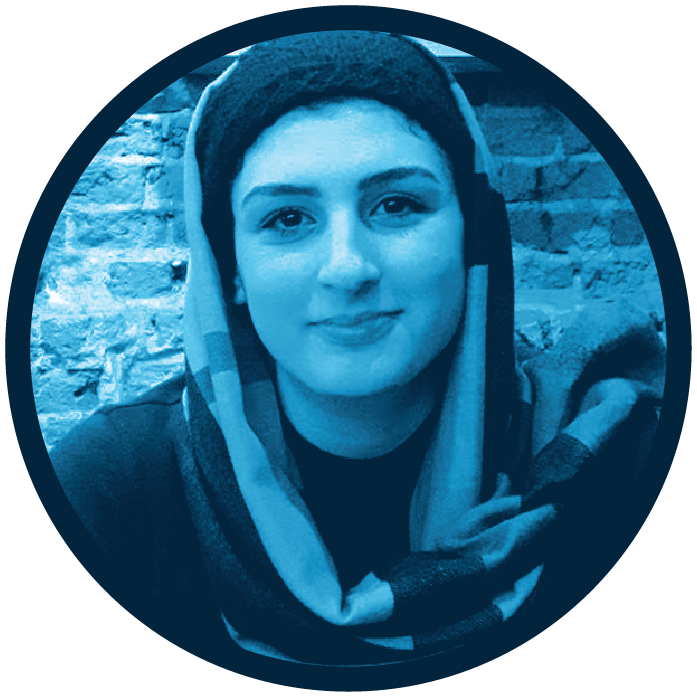
MARZIEH FADAEE
Marzieh Fadaee is the Head of Cohere Labs (formerly Cohere For AI), where she focuses on fundamental research and solving complex challenges in Natural Language Processing (NLP) and building and improving language models. She co-leads the Aya initiative, which led to the creation of the largest multilingual instruction dataset and the development of a series of state-of-the-art multilingual language models. Before joining Cohere for AI, Marzieh was the NLP/ML Research Lead at Zeta Alpha Vector, where she pioneered innovative approaches to knowledge discovery and organization. She holds a PhD from the University of Amsterdam where she studied neural machine translation models.

GITTA KUTYNIOK
Gitta Kutyniok currently has a Bavarian AI Chair for Mathematical Foundations of Artificial Intelligence at the Ludwig-Maximilians-Universität München, and is in addition affiliated with the DLR-German Aerospace Center and the University of Tromso. She received her Diploma in Mathematics and Computer Science as well as her Ph.D. degree from the Universität Paderborn in Germany, and her Habilitation in Mathematics in 2006 at the Justus-Liebig Universität Gießen. From 2001 to 2008 she held visiting positions at several US institutions, including Princeton University, Stanford University, Yale University, Georgia Institute of Technology, and Washington University in St. Louis. In 2008, she became a full professor of mathematics at the Universität Osnabrück, and moved to Berlin three years later, where she held an Einstein Chair in the Institute of Mathematics at the Technische Universität Berlin and a courtesy appointment in the Department of Computer Science and Engineering until 2020. In 2023, together with colleagues she founded the start-up EcoLogic Computing GmbH. Gitta Kutyniok’s research work covers, in particular, the areas of applied and computational harmonic analysis, artificial intelligence, compressed sensing, deep learning, imaging sciences, inverse problems, and applications to life sciences, robotics, and telecommunication.

ARLINDO OLIVEIRA
Arlindo Oliveira obtained his BSc and MSc degrees in Electrical Engineering and Computer Science (EECS) from Instituto Superior Técnico (IST) and his PhD degree, also in EECS, from the University of California at Berkeley. He was invited professor at MIT and a researcher at INESC, CERN, the Electronics Research Laboratory of UC Berkeley, the Berkeley Cadence Laboratories, and the University of Tokyo. He was a member of CNCTI and of the Advisory Board of the Science and Technology Options Assessment Panel of the European Parliament. He is a distinguished professor of IST, president of INESC, distinguished visiting professor at Macau Univ. of S&T, member of the board of CGD. He authored five books, translated into different languages, and hundreds of articles in international conferences and journals, in the areas of algorithms, artificial intelligence, machine learning, bioinformatics and computer architecture. He has been on the boards of several companies and institutions and is a past president of IST, of INESC-ID and of APPIA. He is a member of the Lisbon Academy of Sciences, of the Portuguese Academy of Engineering, and of ACM. He is a senior member of IEEE and a fellow of ELLIS. He received several prizes and distinctions, including the Technical University of Lisbon/Santander prize for excellence in research, the GALP/Academy of Engineering career prize and the ACEPI career prize.

SOFIA MIGUENS
Full Professor in the Department of Philosophy at the Faculty of Arts and Humanities of the University of Porto and researcher at the Institute of Philosophy, where she leads the Mind, Language and Action Group (MLAG). She has been a visiting scholar, visiting researcher, and visiting professor at several international institutions, including NYU – New York University, the Institut Jean Nicod in Paris, the University of Sydney (Australia), and the University of Paris – Sorbonne (2023). She has taught courses and delivered lectures in numerous countries, including Germany, France, the United Kingdom, Finland, Poland, Hungary, the Czech Republic, the United States, Russia, Turkey, and China. She has served as President of the Portuguese Society of Philosophy and as Director of both the Department of Philosophy and the Institute of Philosophy at the University of Porto. She currently directs the Doctoral Programme in Philosophy. She is the author of ten books, including Racionalidade (2004), Será que a minha mente está dentro da minha cabeça? Da ciência cognitiva à filosofia (2008), Filosofia contemporânea – figuras e movimentos (2019), Arte Descomposta (2022) e Mentes humanas, animais e artificiais (2025). She has coordinated more than 20 collective volumes in Portuguese and English, the most recent being The Logical Alien (Harvard University Press, 2020). She has authored over 100 papers in English, French, and Portuguese.

MÁRIO BOTO FERREIRA
Mário Boto Ferreira is a Full Professor at the Faculty of Psychology of the University of Lisbon, where he directs the Centre for Research in Psychological Science (CICPSI). He conducts fundamental research in memory, social cognition, and decision-making, as well as applied research in consumer psychology, aiming to apply concepts and methodologies from basic research to the understanding and resolution of socially relevant problems. His work has specifically explored the effects of financial scarcity on cognitive functioning, as well as the impact of excessive debt on health, emotional well-being, and life satisfaction. In parallel, he has developed and participated in projects on the use of Artificial Intelligence to address excessive debt and poverty, as well as to assess and improve health literacy among Portuguese citizens (SmartHealth project).

MÁRIO FIGUEIREDO
Mário Figueiredo has a PhD in Electrical and Computer Engineering from Instituto Superior Técnico (IST), University of Lisbon, where he is an IST Distinguished Professor and holder of the Feedzai Chair on Machine Learning. He is also a senior researcher and a group leader at Instituto de Telecomunicações. He received several honors and awards, namely: Fellow of the Institute of Electrical and Electronics Engineers (IEEE), Fellow of the International Association for Pattern Recognition (IAPR), Fellow of the European Association for Signal Processing (EURASIP), Fellow of the European Laboratory for Learning and Intelligent Systems (ELLIS), member of the Lisbon Academy of Sciences and the Portuguese Academy of Engineering.

JOSÉ CARLOS PRÍNCIPE
Jose C. Principe (M’83-SM’90-F’00) is a Distinguished Professor of Electrical and Computer Engineering and Biomedical Engineering at the University of Florida where he teaches statistical signal processing, machine learning and brain computer interfaces modeling. He is Eckis Endowed Professor and the Founder and Director of the University of Florida Computational NeuroEngineering Laboratory (CNEL). His primary area of interest is time series analysis in functional spaces, information theoretic learning and AI cognitive architectures. Principe is an IEEE, AAAS, IABME, AIMBE and NAI Fellow. He was awarded the IEEE Neural Network Pioneer Award from the Computational intelligence Society, the IEEE Shannon-Nyquist Technical Achievement Award from the Signal Processing Society, the EMBS Career Achievement Award, and the Teacher Scholar of the Year from the U. of Florida. He was the past Chair of the Technical Committee on Neural Networks of the IEEE Signal Processing Society, Past-President of the International Neural Network Society, and Past-Editor in Chief of the IEEE Transactions on Biomedical Engineering.